Bangkok’s Fiscal Situation: Where Does the Money Come From? Understanding the City’s Revenue Structure
As Thailand’s capital and economic hub, Bangkok is home to over 11 million residents and workers. The Bangkok Metropolitan Administration (BMA) oversees various municipal services, including transport, infrastructure, sanitation, education, healthcare, and public safety. With economic recovery and urban expansion in 2024, Bangkok’s fiscal health is under the spotlight. So, where does the city’s money come from? What are its key revenue sources? Here’s a breakdown of Bangkok’s income structure.
Bangkok’s Fiscal Revenue in 2024
According to the 2024 budget, BMA expects total revenue of THB 84 billion, a 6.3% increase from 2023, driven by economic recovery, real estate market revival, and policy adjustments.
Bangkok’s income sources fall into two main categories:
- Locally collected taxes and fees (11-15% of total revenue)
- Taxes collected and allocated by the central government (85-89% of total revenue)
1. Locally Collected Revenue (Approx. 12%)
In 2024, BMA expects to generate THB 10 billion from local taxes and municipal fees, an 8.5% increase from 2023. The main sources are:
| Revenue Source | 2024 Estimated Revenue (THB Billion) | % of Total Revenue |
|---|---|---|
| Land & Building Tax | 20.5 | 2.4% |
| Billboard Tax | 12.1 | 1.4% |
| Municipal Fees & Fines | 9.8 | 1.2% |
| Government Investments & Public Enterprises | 8.3 | 1.0% |
| Entertainment & Alcohol Licensing Fees | 3.5 | 0.4% |
Key Trends:
📌 Land & Building Tax Up 13.8% – A recovering property market and increased commercial development boost tax revenue.
📌 Billboard Tax Up 7.5% – Growth in digital advertising screens across Bangkok fuels higher tax collection.
📌 Entertainment & Alcohol Fees Back to Pre-Pandemic Levels – A revived nightlife and tourism sector leads to more business licenses.
However, with local revenue contributing less than 15%, Bangkok remains highly dependent on central government tax allocations.
2. Tax Allocations from the Central Government (Approx. 88%)
Most of Bangkok’s income comes from taxes collected by the central government and redistributed to the city, totaling approximately THB 74 billion in 2024. The major sources include:
| Tax Source | 2024 Estimated Revenue (THB Billion) | % of Total Revenue |
|---|---|---|
| Value-Added Tax (VAT) | 30.5 | 36.3% |
| Vehicle Registration Tax & Fees | 19.5 | 23.2% |
| Real Estate Transfer & Registration Tax | 10.0 | 11.9% |
| Specific Business Tax | 4.8 | 5.7% |
Key Trends:
📌 VAT Revenue Up 5.6% – Increased tourism and consumer spending drive higher tax collections.
📌 Vehicle Registration Tax Up 4.8% – Thailand’s electric vehicle (EV) push boosts car sales and related tax revenue.
📌 Real Estate Tax Up 10.2% – A stronger property market leads to higher transaction volumes.

Challenges Facing Bangkok’s Fiscal Stability
🚨 Over-Reliance on Central Government: Nearly 90% of Bangkok’s revenue depends on central tax redistribution, making it vulnerable to economic downturns and policy changes.
🏙 Fluctuating Land & Building Tax Revenue: The real estate market significantly impacts this income stream, requiring better tax collection efficiency.
💰 Rising Public Expenditures: With a growing population, spending on public transport, environmental protection, and healthcare is increasing, adding pressure to the budget.
🚗 EV Growth May Reduce Fuel Tax Revenue: As Thailand promotes electric vehicles, fuel tax income could decline, impacting future fiscal structures.
Potential Fiscal Strategies for Bangkok
🔹 Improve Land & Building Tax Collection – Ensure fair taxation on high-value properties.
🔹 Develop a Smart City Revenue Model – Generate income through parking fees, traffic fines, and digital infrastructure.
🔹 Enhance Financial Independence – Reduce reliance on central funding by attracting investments and promoting public-private partnerships (PPP).
🔹 Boost Tourism-Driven Tax Revenue – Leverage Bangkok’s tourism sector to increase VAT and entertainment tax collections.
Conclusion: How is Bangkok’s Fiscal Health in 2024?
✔ BMA’s 2024 projected revenue: THB 84 billion (up 6.3% from 2023).
✔ Central government tax allocation: 88% of total revenue, with local taxes contributing only 12%.
✔ Key revenue sources: VAT (36%), vehicle registration tax (23%), and real estate transfer tax (11%).
✔ Challenges: Dependence on central government, growing public expenditure, and the impact of EV adoption on tax revenue.
Overall, Bangkok’s fiscal position remains stable in 2024, but the city must increase financial independence and adapt to changing economic conditions. Strengthening local revenue generation will be a key focus in the coming years.




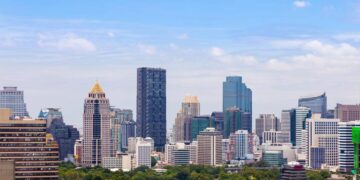



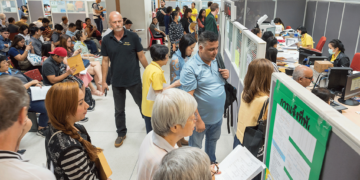
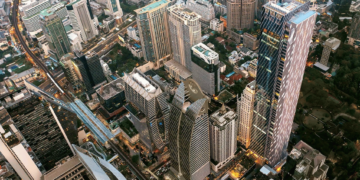




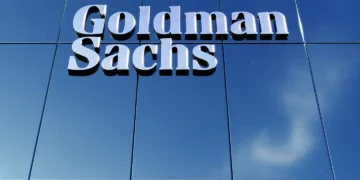



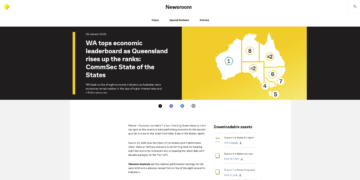













Hi, this is a comment.
To get started with moderating, editing, and deleting comments, please visit the Comments screen in the dashboard.
Commenter avatars come from Gravatar.